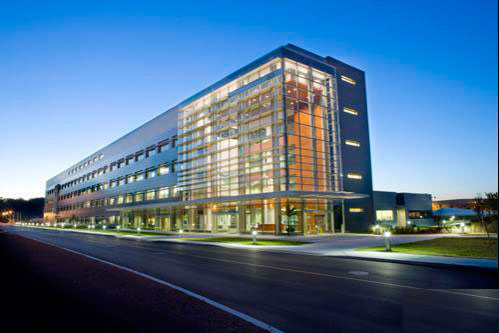Wagoner: Well,certainly, there have been some interesting developments here (in Silicon Valley) and there’s a lot of smart people and obviously some tremendously deep engineering capability—all of which could be helpful to us. We have a lot of different standards we need to meet with automobiles and we and our competitors in the industry have a lot of experience in that and have a lot of experience in high-volume, high-quality manufacturing. I think that’s worth a lot. So we welcome the chance to work with others, but I suspect, you know, 10,20 years from today, companies like GM will be the ones that can really lead the mass adoption of these technologies.
瓦格納:當然,現在硅谷已經有了一些很有趣的發展,那里有很多聰明的人,那里也有很強大的工程能力,那對于我們都是有所幫助的。制造汽車,我們要滿足很多不同的標準,對此,我們以及我們在這個領域的競爭者都很有經驗,并且在大容量、高質量的汽車制造方面我們也是很有經驗的。我認為那是很值得的,所以我們期盼有機會能夠與他人進行合作,但是我想,在10年或20年之后,像通用汽車這樣的公司將會成為大量采用新技術制造汽車的帶頭人。
Reporter: And when you say it’s scale, you mean you’ve got to make enough of these things. You can’t just make a few.
記者:當你說那是規模問題時,你的意思就是你們必須要做足夠多,而不僅僅是一點。

Wagoner: Yeah. Look, it’s fine if you’re making 1,000 or 2,000 of an electric car and I think there is value in that in a lot of ways, but it’s not going to have a big dent in oil consumption in the country, or C02 emissions. What’s going to have a big dent is if you can do 100,000, 200,000, 500,000, a million units. And that’s really what you have to do if you’re going to make term trend in the growth of petroleum C02 emissions. We’ve got to get a lot of volume out of this out here over time if we,re really going to make a difference in those areas.
瓦格納:是的。我想,如果你現在能夠制造1000或2000輛電力汽車,那很好,而且從很多方面來說 都很有價值,但是那不會對國家現今的耗油量或者二氧化碳排放量有很大的影響,如果能夠制造出10 萬、20萬、50萬或100萬輛的話,那將會給我們帶來很大的改變。而那才是我們真正需要做的事 情,以減少二氧化碳的高排放量。如果我們要在這些領域有很大影響的話,我們就必須要努力減少其排放量。
Reporter: But I wonder if Tesla, for example, or some of the others are in effect pushing you to get to that point. You see what they’re doing and we’ve got to catch up or we’ve got to surpass it.
記者:但是我想知道,諸如特斯拉或者其他的公司所做的事情是否能夠真正有助于你們實現那些目標。你知道他們現在都在做些什么,我們必須要趕上他們或者是超過他們。
Wagoner: We’ve watched with admiration what Tesla a difference in what is a long is doing and have had a chance to talk to some of their people and view their progress. But I think to be honest, to do really large-scale manufacturing of those,we would have to use quite a different process. So, we are fascinated to see a lot of people interested in what they’re doing and we’re cheerleading for their success. And if we can learn from that, we will. I’m not sure that the processes that work for production units of 100 or 1,000 or 10,000 are what gets us to the breakthrough, but if we can learn from that, we’ll be glad to do that.
瓦格納:我們很欽佩特斯拉正在做的事情,也很感激能有機會能夠與他們的一些工作人員進行交流,并看到他們的進步。但是坦白說,我認為想要大規模的進行那類汽車生產,我們必須要采用不同的流程。所以我們很高興看到工作人員對此都很有興趣,我們為他們的成功而歡呼。如果我們能夠從中學習到什么,我們會去學習的。但是我不確定,用于生產100、1000或10000輛單位的汽車流程能否幫助我們取得突破,但是如果我們能從中學習到東西的話,我們會樂意學的。
Reporter: And when do you see the big changes coming which you seem to imply are going to happen?
記者:您認為即將發生的最大的變化會是什么呢?












